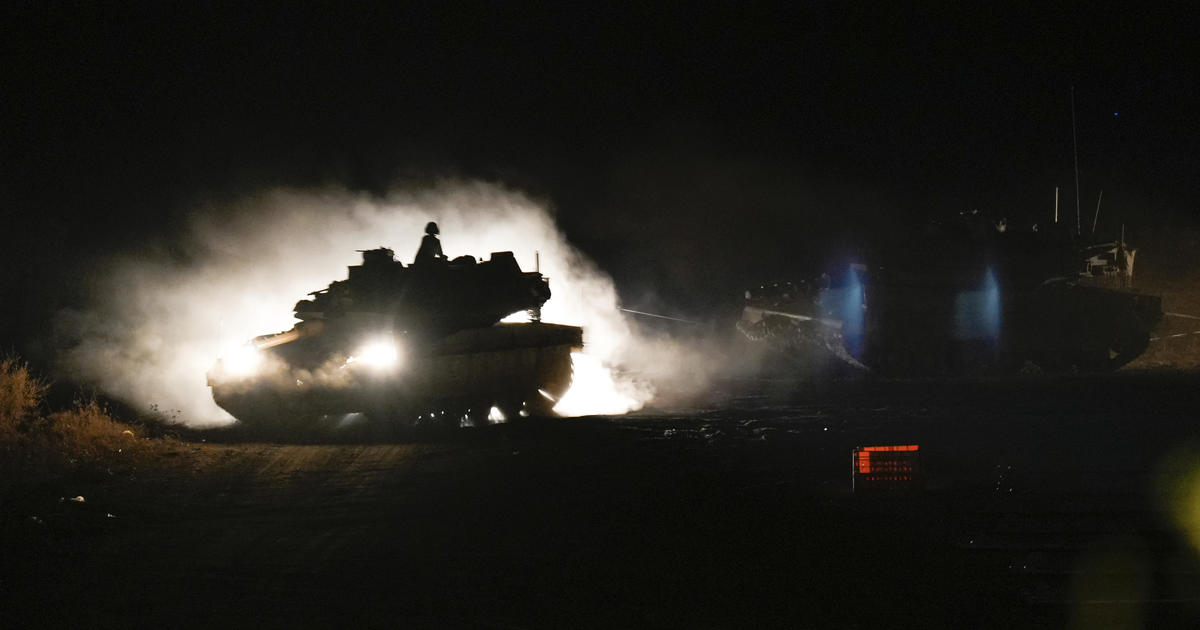Israel’s limited ground operation into southern Lebanon marks a significant escalation in the ongoing conflict with Hezbollah. The operation, announced by the Israeli Defense Forces (IDF), follows weeks of intense airstrikes and represents a potentially risky shift in the dynamics of the regional conflict. The IDF’s claim of a “localized” operation needs to be viewed in the context of the broader regional instability and the potential for a wider conflagration. The situation warrants close scrutiny, given the potential for significant casualties and a dramatic expansion of the conflict beyond the immediate geographical location. This assessment analyzes the various aspects of this complex situation.
The IDF’s Ground Operation in Lebanon
The Official Rationale
The Israeli military justifies its ground incursion as a response to an immediate threat posed by Hezbollah targets located near the border. They emphasize that the operation is “limited, localized, and targeted,” based on precise intelligence. This statement, however, requires careful consideration given the history of Israeli military operations and the potential for unintended consequences and escalations. The claim of precision strikes, whilst seemingly reassuring, does not guarantee the absence of civilian casualties and collateral damage in densely populated areas. Furthermore, the ‘limited’ nature of the operation remains uncertain, as further escalation is always a possibility, especially considering Hezbollah’s capabilities and resolve.
The Strategic Implications
The IDF’s ground operation signifies a significant shift in Israel’s strategy. While airstrikes have been the primary method of attack, the ground incursion signals a desire to inflict greater damage and potentially cripple Hezbollah’s operational capabilities directly. The deployment of ground troops allows for a more direct and potentially devastating attack on infrastructure, personnel, and weapon caches. The choice of launching this operation, even after inflicting significant losses on Hezbollah’s leadership, also suggests an intent to preemptively dismantle Hezbollah’s ability to mount effective counterattacks. However, this risky approach presents the possibility of bogging down in prolonged ground warfare against a well-equipped and determined adversary, escalating the conflict far beyond present parameters.
International Reactions and Concerns
The ground incursion has sparked widespread international concern. The United States, while previously notified of Israel’s intentions, expressed caution. The potential for wider regional conflict remains a significant worry. The operation threatens to further destabilize Lebanon, already grappling with a humanitarian crisis. The possibility of Iranian involvement cannot be discounted, especially given Tehran’s close ties with Hezbollah. Any significant escalation in violence runs the risk of escalating tensions and potential involvement by other actors, potentially dragging other regional nations into a complex and devastating regional war. This is especially critical due to Hezbollah’s substantial arsenal of missiles and the possibility of significant retaliatory action against civilian areas.
Hezbollah’s Response and Capabilities
Hezbollah’s Preparedness
Hezbollah, despite recent significant losses of top commanders, remains a powerful force. The group, supported by Iran, boasts a substantial fighting force and a considerable arsenal of rockets and missiles. Their vow to continue fighting despite casualties underscores their determination to resist Israeli aggression. The group’s ability to swiftly replace its fallen leadership also speaks to its deep organizational depth and preparedness. Hezbollah’s long experience in fighting Israel suggests they may anticipate this move and possess robust counter-offensive capabilities that may have already been put in place to negate the potential impact of a ground incursion.
The Potential for Escalation
Hezbollah’s retaliation, if severe, could broaden the conflict significantly. Rocket fire into Israel and any attempts at cross-border raids hold the risk of major civilian casualties, which is in turn very likely to lead to larger, more intensive counter measures from the IDF. The escalating cycle of violence carries enormous danger in such a densely populated area and risks engulfing neighbouring countries. Even a ‘localized’ operation, if improperly managed, or met with fierce resistance, can quickly unravel into something far greater in scale, involving a range of stakeholders beyond Israel and Lebanon.
The Broader Regional Context
The Risk of Regional Conflict
The conflict between Israel and Hezbollah is inextricably linked to broader regional dynamics. Iran’s support for Hezbollah fuels the ongoing conflict and the involvement of regional and international actors complicates the situation immensely. The possibility of Iran directly entering the conflict remains an open question; however, Iranian responses, be it material aid or proxy activities through other Hezbollah-adjacent groups, must not be discounted. The recent Israeli actions across numerous battle fronts suggest they see this conflict within a larger pattern; the simultaneous strikes in multiple countries point towards Israel acting against various elements viewed as interconnected threats, not just separate entities.
The Humanitarian Crisis
The conflict is having a devastating impact on Lebanese civilians. The widespread damage caused by Israeli strikes, displacement, and a fragile societal infrastructure threaten further losses and instability in an already precarious situation. The conflict could dramatically worsen conditions in Lebanon and pose further humanitarian challenges with long term repercussions in the area. Given already-fragile internal Lebanese structures, any disruption will exacerbate difficulties for its population, regardless of who eventually gains strategic superiority.
Takeaway Points:
- Israel’s ground operation in Lebanon represents a significant escalation in the ongoing conflict with Hezbollah.
- The operation carries substantial risks, including the potential for wider regional conflict and increased civilian casualties.
- Hezbollah, despite recent losses, remains a formidable opponent capable of significant retaliation.
- The humanitarian crisis in Lebanon is worsening, with significant implications for regional stability.
- The conflict’s broader regional context and the potential for Iranian involvement add complexity and danger to the situation.




